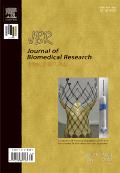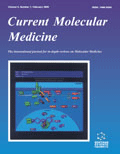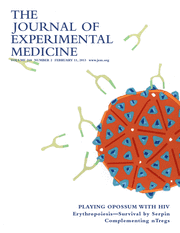
Journal of Translational Medicine
Scope & Guideline
Pioneering the Path from Lab to Life.
Introduction
Aims and Scopes
- Translational Research:
Focuses on studies that translate basic biological research into clinical applications, including the development of new therapies and diagnostic tools. - Cancer Biology and Therapy:
Includes research on the molecular mechanisms underlying cancer, the tumor microenvironment, and novel therapeutic strategies, including immunotherapy and targeted therapy. - Microbiome and Metabolism:
Explores the role of the microbiome in health and disease, particularly its impact on metabolic processes and disease outcomes. - Genomics and Precision Medicine:
Investigates the genetic basis of diseases and the application of genomics in personalizing treatment strategies for patients. - Immunology and Inflammation:
Covers research on immune responses in various diseases, including autoimmune disorders, cancer, and infectious diseases. - Stem Cell and Regenerative Medicine:
Focuses on the use of stem cells and regenerative therapies to repair and regenerate damaged tissues. - Clinical Trials and Epidemiology:
Reports on clinical trials, epidemiological studies, and public health research that inform evidence-based medical practice.
Trending and Emerging
- Artificial Intelligence in Medicine:
The integration of AI and machine learning in diagnostics, treatment predictions, and personalized medicine is gaining momentum, with numerous studies exploring its application in various disease contexts. - Microbiome Research:
The relationship between the microbiome and various health conditions, particularly its role in cancer and metabolic diseases, is becoming increasingly prominent in current literature. - Liquid Biopsy Development:
Research focusing on non-invasive liquid biopsies for cancer detection and monitoring is expanding, reflecting a shift towards patient-friendly diagnostic techniques. - Immunotherapy Advancements:
Studies on novel immunotherapies, including CAR-T cell therapy and immune checkpoint inhibitors, are on the rise, reflecting their growing importance in cancer treatment. - Regenerative Medicine and Tissue Engineering:
Innovative approaches in regenerative medicine, particularly the use of stem cells and bioengineered tissues, are trending, driven by advancements in technology and understanding of cellular mechanisms. - Integrative Omics Approaches:
Research combining genomics, proteomics, metabolomics, and transcriptomics to provide a holistic view of diseases is becoming more common, emphasizing the need for multi-faceted research strategies. - Health Disparities and Social Determinants of Health:
Increasing attention is being given to the impact of social determinants on health outcomes, with studies investigating disparities in access to healthcare and treatment efficacy.
Declining or Waning
- Traditional Drug Discovery Methods:
As the field of drug discovery evolves with the advent of high-throughput screening and computational methods, traditional approaches are becoming less emphasized in favor of more innovative strategies. - Basic Laboratory Techniques:
While foundational, there has been a noticeable shift towards more complex and sophisticated techniques in translational research, leading to a decline in papers focused solely on basic laboratory methods. - Invasive Diagnostic Procedures:
With the rise of non-invasive techniques and liquid biopsies, there has been a reduction in the publication of studies centered around traditional invasive diagnostic methods. - Animal Models in Early Research:
As the field moves towards more human-relevant models and in vitro systems, studies relying heavily on animal models are becoming less prevalent. - Single-Pathway Studies:
Research focusing on single signaling pathways is waning, with a growing interest in multi-pathway and systems biology approaches that reflect the complexity of biological systems.
Similar Journals

Discovery Medicine
Advancing medical knowledge through innovative research.Discovery Medicine, an esteemed journal published by Discovery Medicine, serves as a vital platform within the field of general medicine, dedicated to advancing knowledge through high-quality research and innovative insights. With its ISSN 1539-6509 and E-ISSN 1944-7930, this journal boasts an impressive Scopus ranking of #29 out of 529 in the general medicine category, positioning it at the 94th percentile, indicating its significant contribution to the medical sciences. While operating as a subscription-based journal, Discovery Medicine fosters an environment where researchers and professionals can disseminate their findings and engage with cutting-edge developments in medicine. Spanning topics that bridge clinical practice and healthcare advancements, this journal aims to inform, challenge, and inspire the medical community. The journal has converged its volumes from 2006 to 2007 and again from 2009 to 2018, highlighting its sustained commitment to excellence even as coverage has temporarily discontinued in Scopus. Situated at 10 Gerard Ave, Ste 201, Timonium, MD 21093, Discovery Medicine continues to be a cornerstone for medical scholars, offering a rich repository of knowledge essential for ongoing research and practical applications.

Journal of Biomedical Research
Advancing Biomedical Frontiers with Every DiscoveryJournal of Biomedical Research, published by Nanjing Medical University in China, is a prominent platform for groundbreaking discoveries in the fields of Biochemistry, Genetics, and Molecular Biology, as well as Medicine. With an ISSN of 1674-8301 and an E-ISSN of 1876-4819, the journal offers a vital opportunity for researchers, professionals, and students to disseminate insightful research findings. Although not currently available as an open access journal, its inclusion in the second quartile of both Biochemistry and Medicine categories underscores its growing influence and commitment to high-quality scholarship, as evidenced by its historical compliance with Scopus rankings prior to 2009. By fostering an interdisciplinary approach, the Journal of Biomedical Research aims to bridge gaps in current biomedical understanding and encourages innovative research that can lead to significant contributions in improving health outcomes. Its editorial policies guarantee rigorous peer review, making it a trusted source of knowledge in the biomedical community.

CURRENT MOLECULAR MEDICINE
Exploring the Molecular Mechanisms of Health and DiseaseCURRENT MOLECULAR MEDICINE is a pivotal journal fostering advancements in the interdisciplinary fields of molecular medicine, biochemistry, and genetics. Published by Bentham Science Publishers, this esteemed journal has been disseminating vital research findings since its inception in 2001 and is continuously dedicated to exploring the molecular basis of health and disease. With a focus on translational research, CURRENT MOLECULAR MEDICINE provides an invaluable platform for researchers, healthcare professionals, and students, making significant contributions to the understanding of molecular mechanisms and therapeutic strategies. With an ISSN of 1566-5240 and an E-ISSN of 1875-5666, the journal holds a commendable position within the scientific community, being ranked Q3 in Biochemistry and Molecular Biology and Q2 in Medicine (miscellaneous) as of 2023. This journal does not currently operate on an open access model but remains accessible through various institutional subscriptions. The multidisciplinary scope covering molecular biology to medicinal applications positions CURRENT MOLECULAR MEDICINE as an essential resource for those striving to meet the challenges of modern healthcare and biomedical research.

Nature Cancer
Transforming Insights into Impactful SolutionsNature Cancer, published by NATURE PORTFOLIO, stands at the forefront of oncological research with a robust impact within the scientific community. As an esteemed journal with impressive rankings—#12 in Medicine (Oncology) and #8 in Biochemistry, Genetics and Molecular Biology (Cancer Research) according to Scopus, placing it within the 97th and 96th percentiles respectively—Nature Cancer boasts a Q1 category status in both Cancer Research and Oncology for 2023. The journal's commitment to advancing cancer research is crucial, promoting high-quality, peer-reviewed studies that address the complexities of cancer biology and treatment. By facilitating open access to impactful findings, Nature Cancer aims to foster collaboration and inspire innovative approaches among researchers, professionals, and students alike, making significant strides in the global fight against cancer. As this pivotal publication continues its converged years from 2020 to 2024, it heralds a future ripe with transformative insights and breakthroughs in the vital field of oncology.

Journal of Inflammation Research
Uncovering the Mechanisms of Inflammation for Better HealthJournal of Inflammation Research, published by Dove Medical Press Ltd, is a premier open-access journal dedicated to advancing the field of immunology and allergy, with a particular focus on the biological mechanisms underlying inflammation. Since its inception in 2008, this journal has provided a vital platform for researchers to share their findings and foster collaboration within the global scientific community. With an impressive 2023 impact factor placing it in the Q2 category for both Immunology and Immunology and Allergy, the journal has consistently maintained its relevance and high academic standards, ranking #100 in Medicine (Immunology and Allergy) and #118 in Immunology (Immunology and Microbiology) according to Scopus metrics. The E-ISSN 1178-7031 allows for easy access to a plethora of pioneering research articles, reviews, and clinical studies that address contemporary issues in inflammation and immunity. As a leading resource for researchers, professionals, and students alike, Journal of Inflammation Research is committed to facilitating the dissemination of groundbreaking discoveries that contribute to improved therapeutic strategies and health outcomes.

Blood Science
Pioneering Research for Better Blood HealthBlood Science is a distinguished peer-reviewed journal published by Lippincott Williams & Wilkins, focusing on the dynamic field of hematology. Since its inception, the journal has aimed to disseminate high-quality research and innovative findings that contribute to our understanding of blood-related health issues. With the ISSN 2543-6368, it offers a platform for academic discussions and breakthroughs in various subfields including hematopathology, blood disorders, and transfusion medicine. As of 2023, Blood Science is ranked in the third quartile (Q3) within the hematology category, indicating a burgeoning influence among its peers, with a Scopus rank of #101 out of 137 journals, placing it in the 26th percentile. Although it is not an open-access journal, it provides essential insights and valuable data for researchers, healthcare professionals, and students alike, enhancing the collective knowledge and practices in hematology. With a publication period spanning from 2019 to 2024, Blood Science remains committed to fostering the advancement of blood science research and enhancing patient care methodologies.

FASEB BioAdvances
Exploring Breakthroughs in Biological ResearchFASEB BioAdvances, published by WILEY, is an esteemed open-access journal dedicated to advancing the fields of biochemistry, molecular biology, and physiology. Since its inception in 2019, the journal has rapidly established a significant presence within the academic community, boasting an impressive impact factor reflective of its Q2 and Q3 standings across various categories, including Biochemistry, Genetics and Molecular Biology, Cancer Research, Molecular Medicine, and Physiology. The journal aims to disseminate high-quality research and innovative findings to enhance the understanding of biological processes, making it a vital resource for researchers, professionals, and students alike. With its commitment to open access, FASEB BioAdvances ensures that groundbreaking research is available to a global audience, facilitating collaboration and exploration in these rapidly evolving scientific domains.

FASEB JOURNAL
Advancing the Frontiers of Biological ScienceFASEB JOURNAL, published by Wiley, stands as a leading interdisciplinary platform in the realm of biological sciences, prominently featured in the United States. With an impressive 2023 impact factor placing it in the Q1 category across various fields including Biochemistry, Biotechnology, Genetics, Molecular Biology, and Medicine (miscellaneous), the journal is recognized for its substantial contribution to advancing knowledge and innovation. It serves as a vital resource for researchers, professionals, and students alike, providing high-quality, peer-reviewed articles that explore the molecular and cellular mechanisms underlying health and disease. The FASEB JOURNAL not only emphasizes accessible scientific communication but also fosters collaboration within these dynamic fields, making it an essential publication for anyone engaged in cutting-edge life sciences research. To explore more about the journal's offerings and access its vast repository of scholarly articles, visit their official page.

JOURNAL OF EXPERIMENTAL MEDICINE
Advancing the Frontiers of Medical ResearchJOURNAL OF EXPERIMENTAL MEDICINE, published by Rockefeller University Press, is a renowned peer-reviewed journal dedicated to advancing the field of experimental medicine since its inception in 1896. With an impressive impact factor and categorized in the Q1 quartile for Immunology, Immunology and Allergy, and Miscellaneous Medicine, this journal stands at the forefront of medical research and innovation. It provides a prestigious platform for scholars and practitioners to disseminate groundbreaking findings that drive the understanding of disease mechanisms and therapeutic strategies. While the journal is not open access, it maintains high visibility and engagement within the scientific community, fostering collaboration among researchers, professionals, and students alike. The journal's consistent ranking in the top percentiles of Scopus illustrates its significant impact and commitment to excellence in medical research.

JOURNAL OF GENE MEDICINE
Innovating Molecular Medicine for TomorrowThe Journal of Gene Medicine, published by Wiley, stands as a pivotal resource in the field of gene therapy and molecular medicine, with a rich history of dissemination of impactful research since its inception in 1998. With an ISSN of 1099-498X and an E-ISSN of 1521-2254, this esteemed journal plays a crucial role in advancing our understanding of genetics and drug discovery, reflected in its impressive 2023 Scopus rankings where it holds a Q2 classification in Drug Discovery and Q3 in several genetics-related categories. The journal aims to facilitate the exchange of high-quality research findings that bridge the gap between laboratory and clinical applications, making it an essential platform for researchers, academics, and healthcare professionals committed to the forefront of genetic innovation. Although it does not currently offer open access options, its reputation for rigorous peer review ensures that all published work meets the highest academic standards, providing a reliable reference for scientific inquiry in the United States and beyond. As the field rapidly evolves, the Journal of Gene Medicine remains at the helm, guiding future discoveries with its influential publications and comprehensive insights.